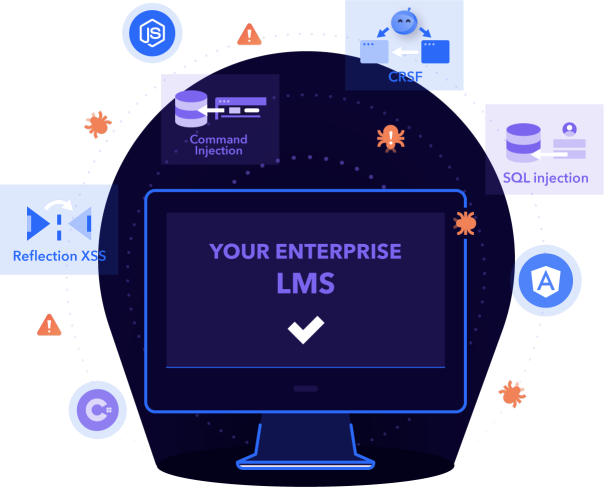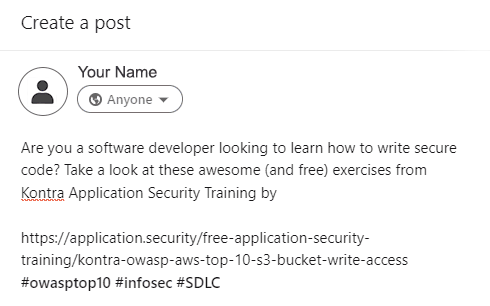Our Content, Your Environment
Our SCORM-compliant content works with the leading third-party learning management systems to enable
faster integration and deployment in a platform developers already know and use.
Contact our sales experts today to get started
Why Use Kontra SCORM
Kontra SCORM, the industry's only interactive application training solution that plugs into
your existing Learning Management System, addressing your training challenges.
Developer
Onboarding
Easily roll out your application security training platform to hundreds and thousands of software developers in minutes using your own LMS.
User Role and
Group Management
Use Single Sign-On for frictionless onboarding that support Groups and Roles for seamless integration.
Training
Enforcement
By integration Kontra SCORM into your native LMS, you can continue to rely on your powerful training enforcement features.
Reporting and
Compliance
Track your trams progress and easily report back to management with relevant and meaningful metrics all directly from your LMS analytics.
SCORM: Ready for Enterprise
Kontra SCORM files can run on every major learning management system without
requiring additional API integrations,
custom batch jobs, or any other complication configurations.
Our SCORM content gives large organizations the ability to leverage their enterprise
LMS's powerful capabilities including:
- Detailed reporting – user and team transcripts
- Assign a course by job title, department, or role
- Compliance management – digital signature, CEU, and recurring training events
- Quiz (Optional)
- Auto reminders and notifications
- Auto Notifications and compliance violations
- Leverage existing training workflows mandated by HR and Infosec Policy
Book a Demo
SCORM: Ready for Enterprise
Compatible with any LMS
Kontra’s SCORM courses are compatible with SCORM 1.2 and SCORM 2004, the most widely supported versions of SCORM.
Our content works out-of-the-box with leading third-party learning management systems and enterprise training platforms to enable faster integration and deployment.
- 360 Learning
- Absorb
- Adobe CP
- Cornerstone Learning
- Docebo
- Looop
- Oracle PS
- Saba Cloud
- SAP Litmos
- Sap Success Factors
- Skillssoft
- Work Day
Book a Demo
Compatible with any LMS
Ready to Try SCORM For Free?
Contact our expert sales team today to experience the
full benefits of our SCORM portal management system
Frequently Asked Questions
If the answer is yes, you were most likely accessing a corporate Learning Management System or LMS.
A learning management system (LMS) is a platform for managing and hosting training courses and learning content, providing users access to content and delivering and providing robust tracking and reporting functions.
An LMS is designed to make life easier for those in charge of training and development — e.g. identifying and assessing individual and organizational learning goals, tracking progress toward meeting those goals, and collecting and presenting data for supervising the learning process.
















